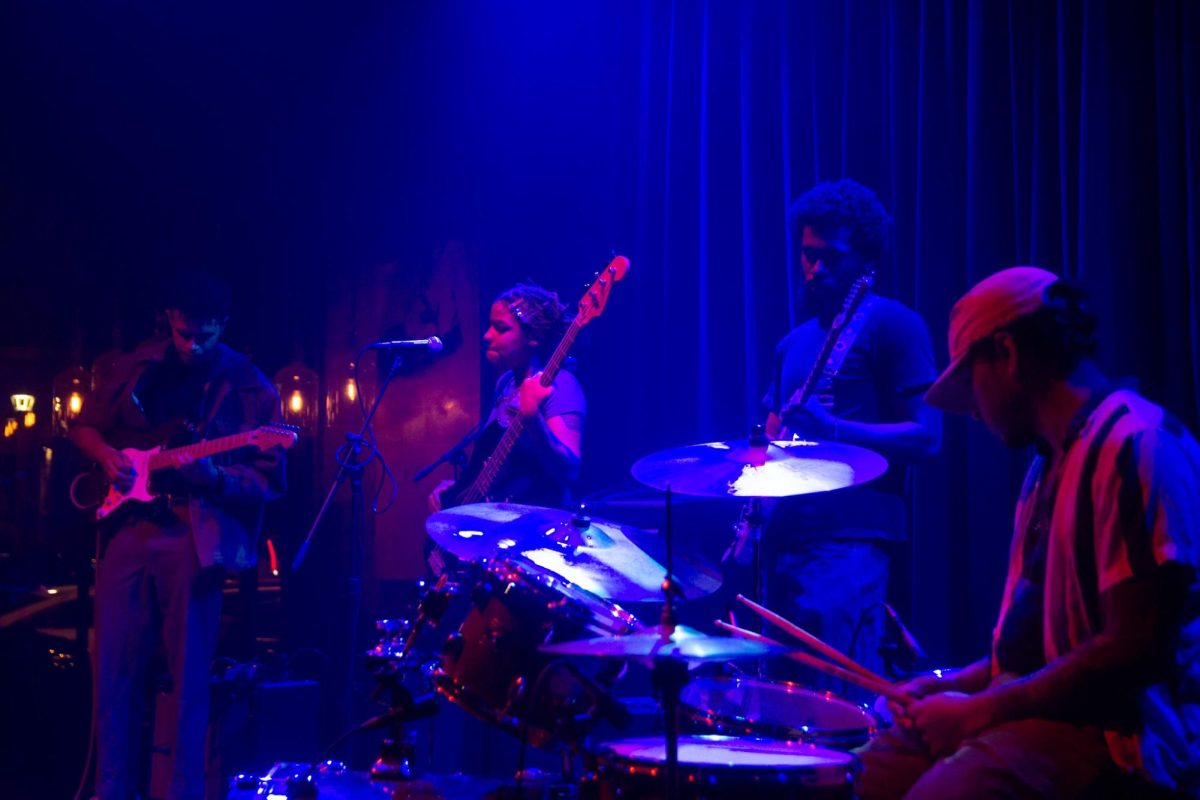What: The Magnetic Fields with Gal Musette
When: 7 p.m., Tuesday
Where: First Avenue Mainroom, 701 N. First Ave., Minneapolis
Cost: $30
Age: 18+
Even though his lyrics tend to evoke ambiguity, Stephin Merritt explains his songwriting process in very simple terms.
“I sit around in gay bars for a few hours every day with a drink in one hand and a pen in the other,” he said. “I write ideas in my notebook, some of which turn into songs.”
Merritt, the principle singer, songwriter and producer, crafts droll character studies for The Magnetic Fields. Every track from the synth-pop group shows the baritone lead singer’s affinity for equating humor with tragic love — no doubt lifted from the West Hollywood bars he frequents.
The L.A.-based group’s 11th album, “Love at the Bottom of the Sea,” finds farce amidst sorrow again on the crisp single, “Andrew in Drag.” Though Merritt may never top his ultimate statement for the group, 1999’s “69 Love Songs,” “Bottom of the Sea” sees a return to the synthesizer after a trilogy of albums without the group’s staple instrument.
“There’s a Dewanatron synthesizer, which is not based on a keyboard and not based on playing the notes you tell it to play,” he said. “Where indeterminacy is an advantage of the instrument like the Dewanatron.”
Indeterminacy equals more avenues for excitement on an album marked by Merritt’s signature somber timbre and his punch line-fueled lyrics.
“A pity she does not exist / A shame he’s not a fag / The only girl I ever loved was / Andrew in drag,” Merritt sings behind an acoustic and synth-laded back, harking back to “69 Love Songs.”
Merritt’s turns of phrase and puns populate “Bottom of the Sea,” an album with each of its 15 songs under three minutes in length. Known for sipping Cognac and penning lyrics with Top 40 playing, Merritt is easily bored with any song longer than five minutes.
“For the entire 20th century, the typical song was less than three minutes long,” he said. “There are only a few deviations from that. I think if you can’t say it in three minutes, you certainly can’t say it in four.”
Although the alcohol-imbibing troubadour favors a buzz when stringing the words to his songs — he even blacked out when he first wrote “Andrew in Drag” — Merritt’s production shows a perfectionist’s attention to detail. In 2008, nearing the release of “Distortion,” he decided to overhaul the album.
“I decided to redo half of the lead vocals with Shirley Simms singing instead of me, which entailed remixing half the record and remastering it,” he said. “It was all ready to go, but it wasn’t out yet. So we could tweak it.”
Merritt might prefer brevity in his songs, but he doesn’t see anything wrong with the amount of time he spends on the production side of things — sober, of course.
“Bob Hurwitz, the president of Nonesuch, likes to say that nobody ever remembers how long it took to create an album,” he said. “They only remember the album. I agree, and I take that to heart.”
If the man behind “The Magnetic Fields” takes much to heart, it’s his devotion for crafting songs instead of playing them in front of an audience.
“Touring is by far my least favorite part of putting out a record,” Merritt said.
His distaste for playing live oozes into the Leonard Cohen ennui he invokes on “Bottom of the Sea,” but it’s all part of his surly persona. The album’s airy synth sounds may create a slight sonic departure for the band, but not for Merritt’s signature lyrical voice — one he finds each day by downing another drink while another manufactured pop hit blares.
“The function of the music playing in the bar for me is to drive out the music that would be playing in my head so that I can invent more,” Merritt said. “Because often the music playing in my head is a Bumble Bee Tuna jingle or something like that.”













